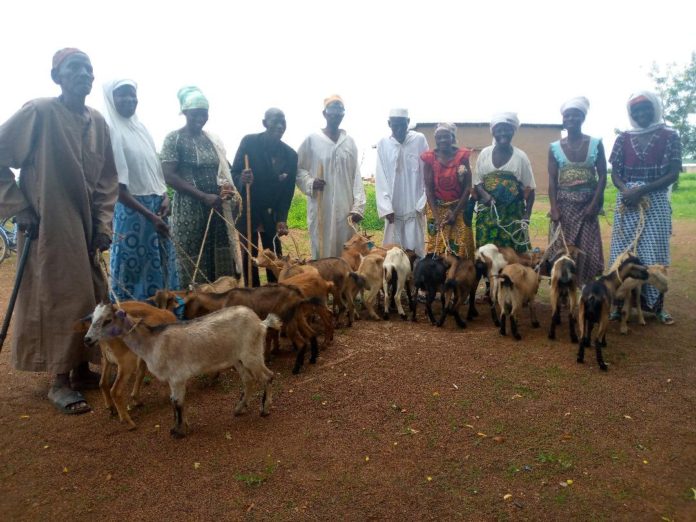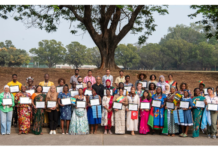World Vision Ghana, a Christian humanitarian and development organization has provided 220 small ruminants to 110 farmers in the Bawku West District of the Upper East Region to rear as economic empowerment venture for improved livelihoods.
The beneficiaries, with each receiving two female goats comprised 70 women and 40 men were selected from Galaka, Kari- Natinga, Adonsi, Kusanaba-Kukua, Kusanaba-Namoo, Zongoyire, Soogo, Googo, Bulinga and Winnaba communities.
About 30 of the beneficiaries have various forms of disabilities such as visual and hearing impairments, physical challenges among others. The support was part of the implementation of the Re-greening Africa Project being implemented in Bawku West, Garu and Tempane Districts by World Vision Ghana with funding from the European Union (EU).
At separate communities to present the goats to the farmers, Mr Edward Akunyagra Anaba, the Project Manager for the Re-greening Africa Project in charge of the Bawku West Cluster, noted that it was seeking to create a sustained approach to reversing land degradation and integrating food production through agroforestry.
Farmer Managed Natural Regeneration
He explained that as a result through approaches such as the Farmer Managed Natural Regeneration (FMNR) and tree planting, the project has restored 208,057 hectares of land across the three districts. Wild fires have also been brought to the barest minimum in these districts through the activities of firefighting stewards formed by the project.
“The project addresses pressing challenges of the savannah areas of Ghana such as acute and prolonged dry seasons, overgrazing (livestock pressure), rampant bush burning, and indiscreet felling of trees that culminated in the decline of the forest cover, loss of indigenous biodiversity and increased soil infertility,” he said.
“The project’s objective is to improve livelihoods, food security and resilience to climate change by smallholder farmers in Africa and restore ecosystem services, particularly through evergreen agriculture.”
To leverage the impact of the project, Mr Anaba said the smallholder farmers were supported with the small ruminants to take advantage of the restored natural resources and fodder available and enter into rearing as a lucrative business venture to improve on their livelihood.
He added that the gesture was to reward the communities for their efforts in restoring the environment. The Project Manager who entreated the beneficiaries to take good care of the animals said while the animals would provide food and source of income for the farmers, it would motivate the communities to ensure sustainable project to protect the environment.








